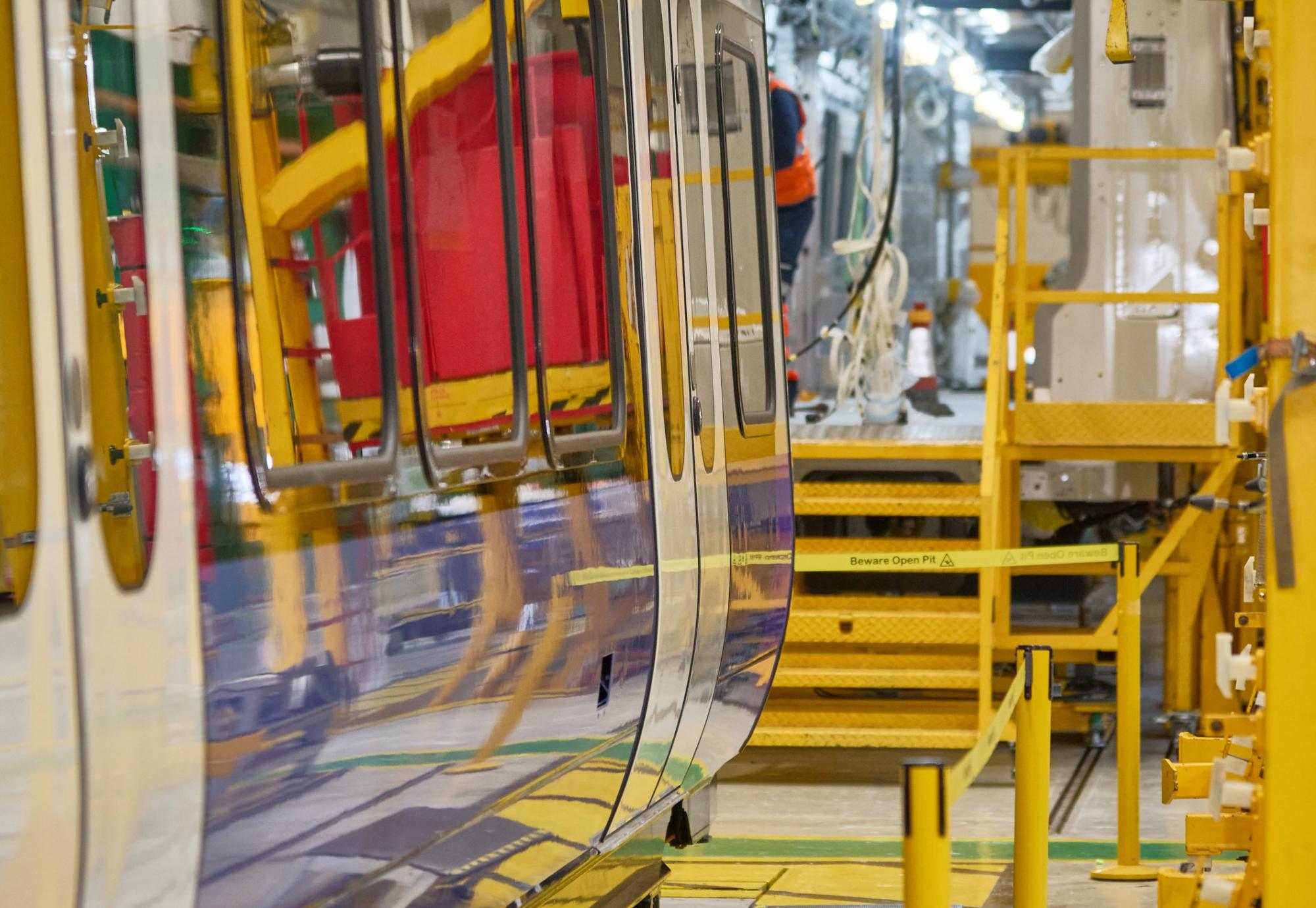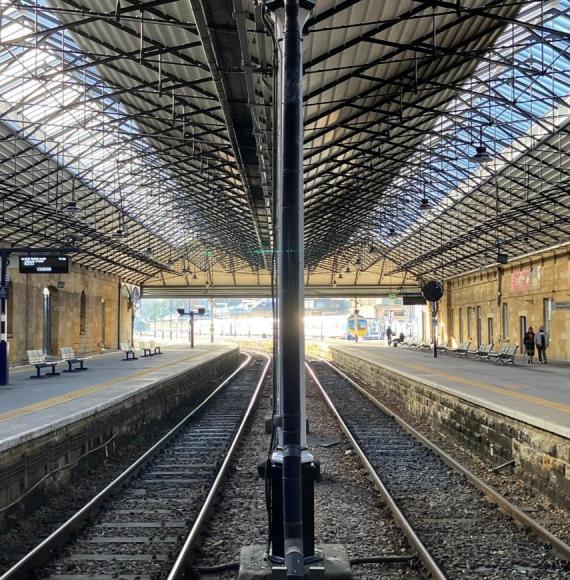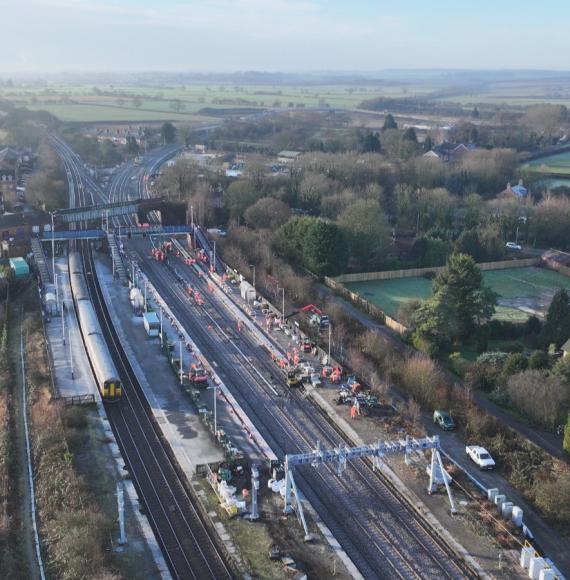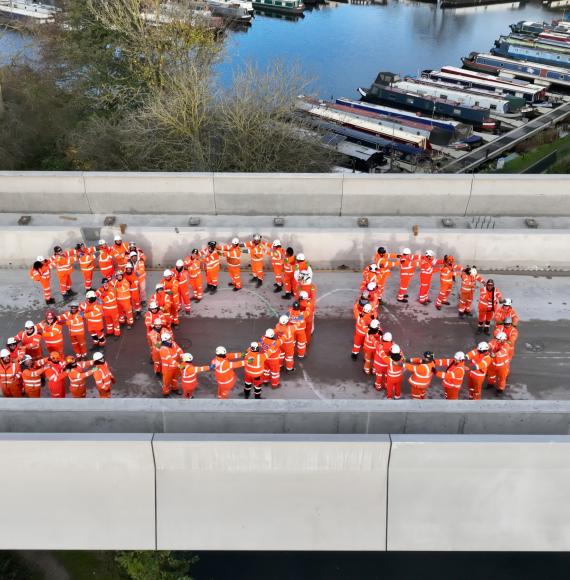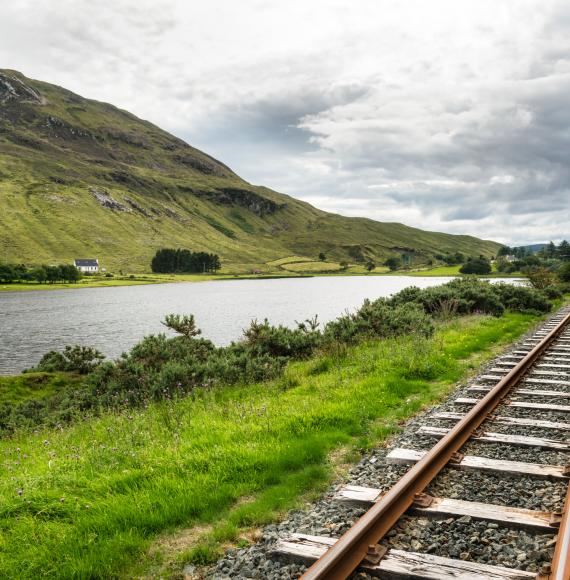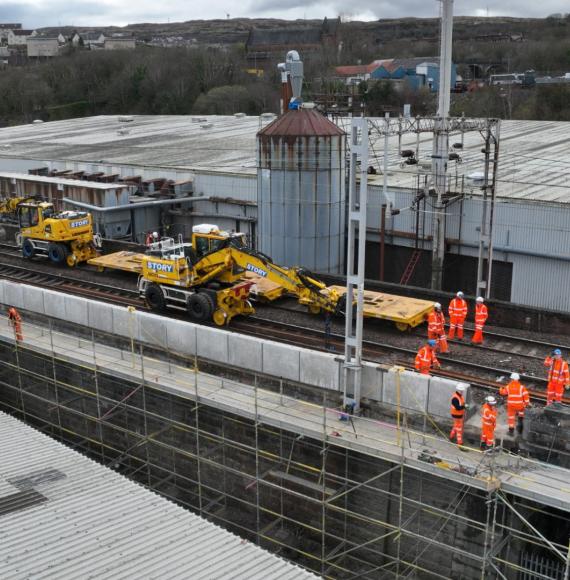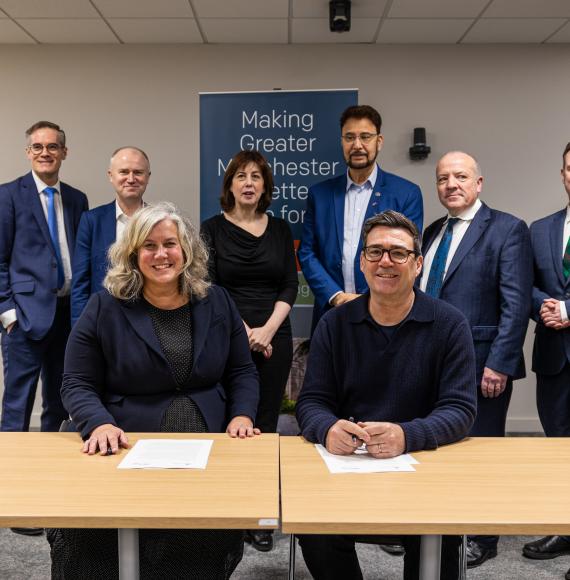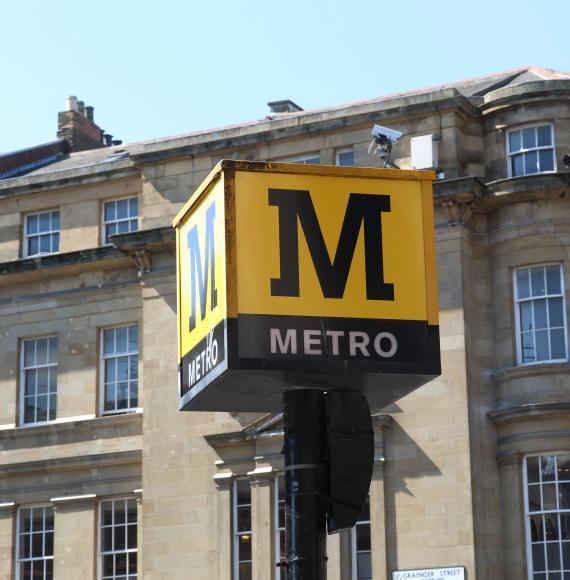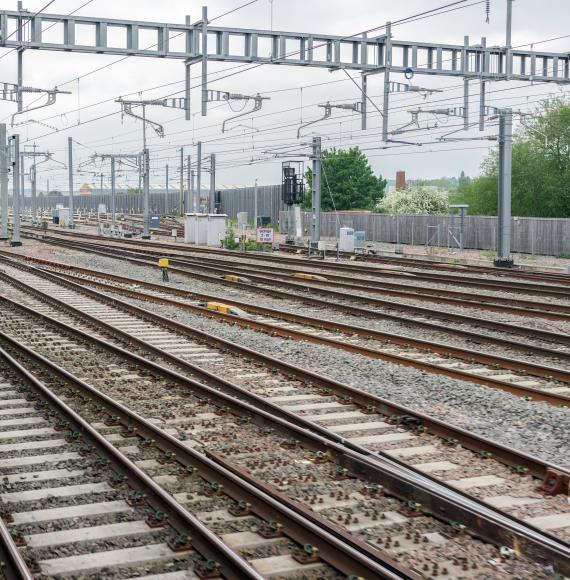Elizabeth line customers are closer to getting more brand new trains, as construction has begun on the first of an additional 10 to be introduced to the network. These new trains are being built in the East Midlands to support both the growing demand for the hugely popular line and the government’s growth agenda.
Since opening in 2022, the Elizabeth line has had a transformational effect on travel in London and has quickly become the UK’s single busiest railway service, with an average of 800,000 journeys now made on the service each day.
The new trains - which were ordered with UK Government funding - will allow Transport for London (TfL) to increase capacity on the existing line, further driving the economy by boosting connections and serving HS2’s new Old Oak Common station in the future.
The Aventra Class 345 trains are being built by Alstom at their factory in Derby, supporting jobs in the city, which has been a railway hub since 1839. This vital work in Derby demonstrates how investment in London’s transport infrastructure boosts economic growth across the country, with Alstom’s supply chain supporting almost 40 companies across the UK, totalling more than 1000 employees. TfL has a long-standing role as a national engine of growth and has spent more than £12 billion with more than 3,000 UK suppliers over the last two years. This has supported more than £11 billion in total Gross Value Added and 100,000 full-time jobs each year.
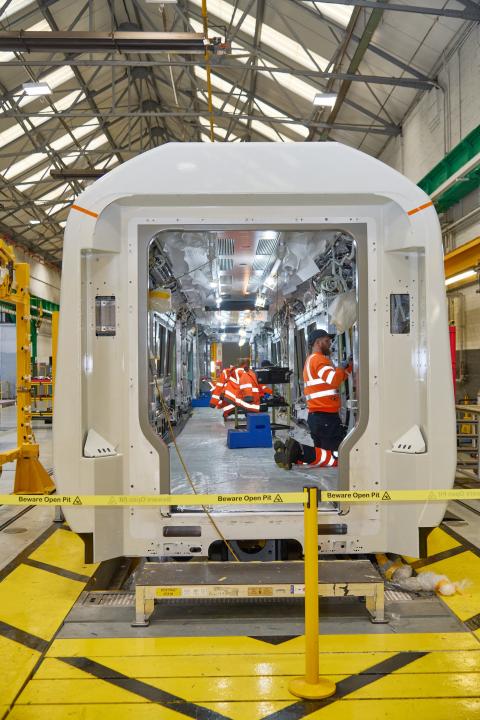
A new Elizabeth line evaluation report has revealed the extent to which the public has embraced the city’s new railway line since it opened, and its positive impact on housebuilding and employment. The analysis reveals that the Elizabeth line is driving up public transport use in the capital, supporting the Mayor’s aim for 80 per cent of all trips in London to be made on foot, by cycle or using public transport by 2041. Since the line opened, an additional 71,000 trips are estimated to have been made across London’s transport network each weekday.* In Abbey Wood in the southeast, an estimated 16 per cent of trips on public transport beginning in this area wouldn’t have occurred without the Elizabeth line.
Customers have also benefited from an 11 per cent drop in step-free journey times, based on average public transport journeys.** All Elizabeth line stations between Paddington and Woolwich have step-free access from street to train, and all other stations are step-free from street to platform. Last year, TfL published an ambitious new customer plan to help create a fairer, more accessible and inclusive transport network for everyone. The plan, Equity in Motion, commits to more than 100 new and ambitious actions to further build on TfL and the Mayor's ongoing efforts to create a fairer and safer London.
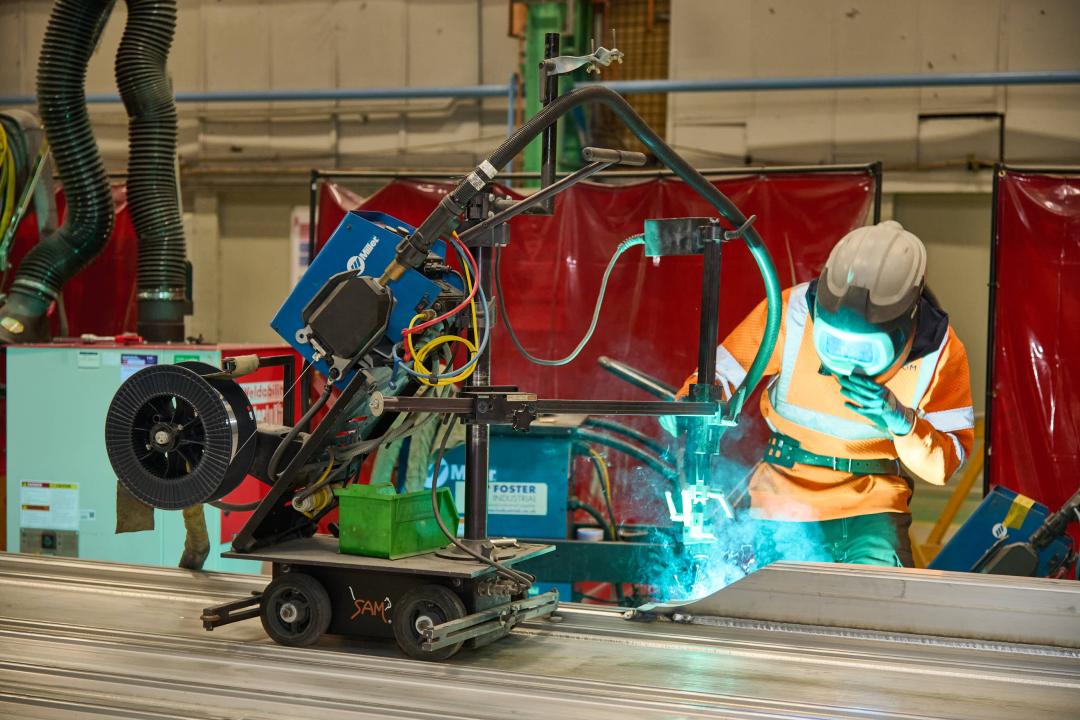
Clear benefits of the Elizabeth line are also evident for those who live and work in southeast London, where the new service has revolutionised travel. Trips to most London stations and employment hubs from Abbey Wood station have been reduced by 20 to 40 minutes, and journey times between Canary Wharf and Abbey Wood have been cut by almost half.
The Mayor’s Transport Strategy outlines that London needs an additional 65,000 new homes each year to meet demand, plus around 1.3 million more jobs by 2041. Increased connectivity has shown Elizabeth line stations to be prime locations for development. As of October 2024, 70,500 housing units are planned within one kilometre of Elizabeth line stations – with Canary Wharf, Stratford, Romford, Southall and Acton Main Line seeing the highest concentrations. Between 2022 and 2023, 125,000 new jobs were registered within one kilometre of an Elizabeth line station.
The benefits of the increased connectivity in southeast London, thanks to the Elizabeth line, demonstrate the importance of TfL’s plans to extend the Docklands Light Railway (DLR) in this direction to Thamesmead via Beckton Riverside. If funded, the DLR extension has the potential to deliver 25,000 homes and approximately 10,000 new jobs in areas of high deprivation with huge housing needs. Providing new public transport options would support highly connected, low-carbon developments in Thamesmead and Beckton Riverside. It would also improve connectivity across the river and provide alternatives to private car use, helping to lower future emissions and resulting pollution levels and creating green, liveable neighbourhoods.
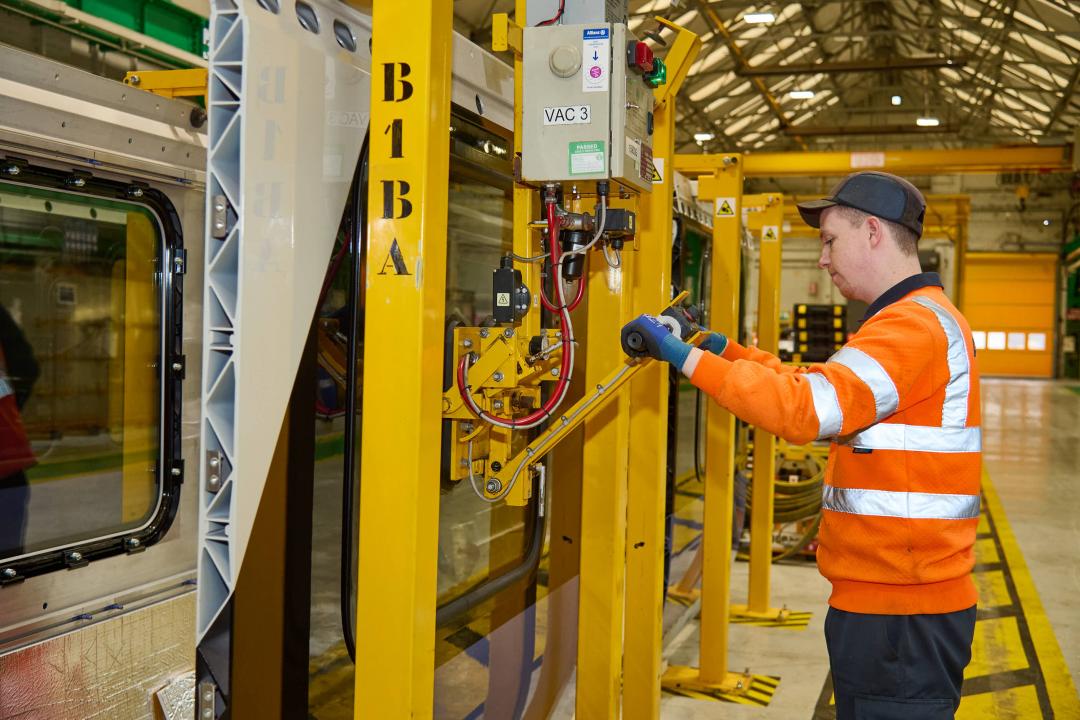
Andy Lord, London’s Transport Commissioner, said: “The start of production of 10 new trains in Derby is a testament to the popularity and success of the Elizabeth line and shows how it is driving growth well beyond London, boosting employment and powering industry across the UK. This new report also illustrates the extent to which the line is driving up public transport use in London, speeding up travel on the network and driving regeneration through homebuilding. It also indicates significant housing potential beyond the line – particularly at Thamesmead Waterfront, which our transformative plans to extend the DLR, via Beckton Riverside, would support.”
Transport Secretary Heidi Alexander said: “Thanks to over £220m in Government funding, TfL’s order for new Elizabeth line trains is a shining example of how public investment in our railways delivers for communities across the country, supporting more than 1000 skilled jobs in Derby and ensuring London’s transport network keeps pace with growing demand.
“This is a clear demonstration of our Plan for Change promise to build a modern, accessible and sustainable railway that drives economic growth, cuts journey times and brings countless opportunities to people both in the capital and beyond.”
Seb Dance, Deputy Mayor of London for Transport, said: “The Elizabeth line shows how quality transport infrastructure can unlock opportunities for people and places across the country, and this vital work in Derby makes clear that investing in the capital’s transport network doesn’t just benefit Londoners but drives wider economic growth across the country.
“With the Government committed to growth and green-lighting a record number of major infrastructure projects in its first year, the Mayor and I look forward to working hand in hand with them to unleash the full potential of our transport network as we continue building a more prosperous London for everyone.”
Rob Whyte, Managing Director UK and Ireland at Alstom, said: "Our historic Derby Litchurch Lane Works are crucial to the country's economic growth, being the only UK factory where you can design, engineer, build and test a train from scratch for both domestic and export markets. Therefore, not only will these new Aventra trains enable Transport for London to continue successfully operating the Elizabeth line as passenger demand grows, they continue to support high-value manufacturing and supply chain jobs in the East Midlands and across the UK. We look forward to our new Elizabeth line trains joining the existing fleet, which are maintained by us around-the-clock at our state-of-the-art depot at Old Oak Common.”
Image credit: TfL

